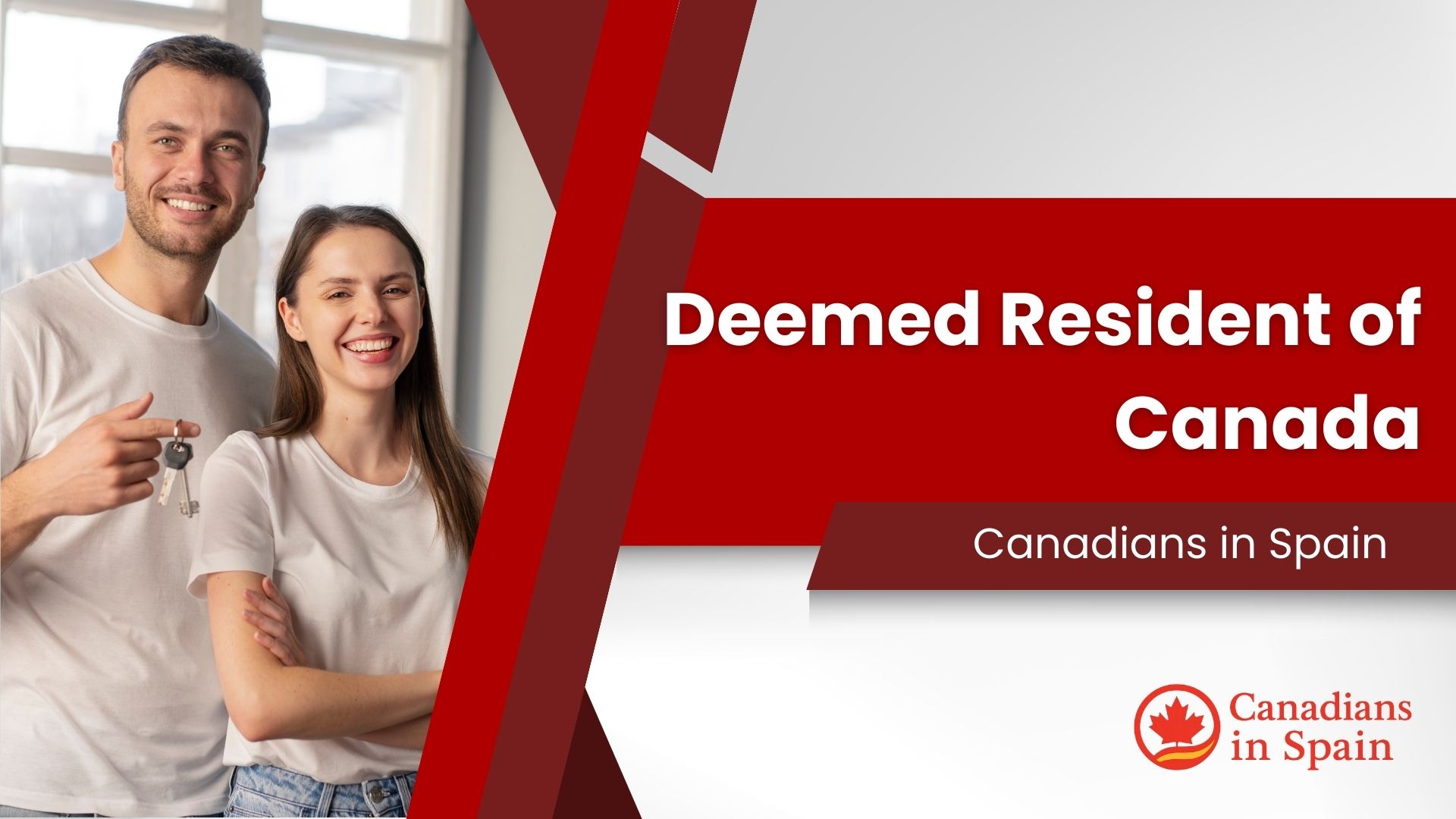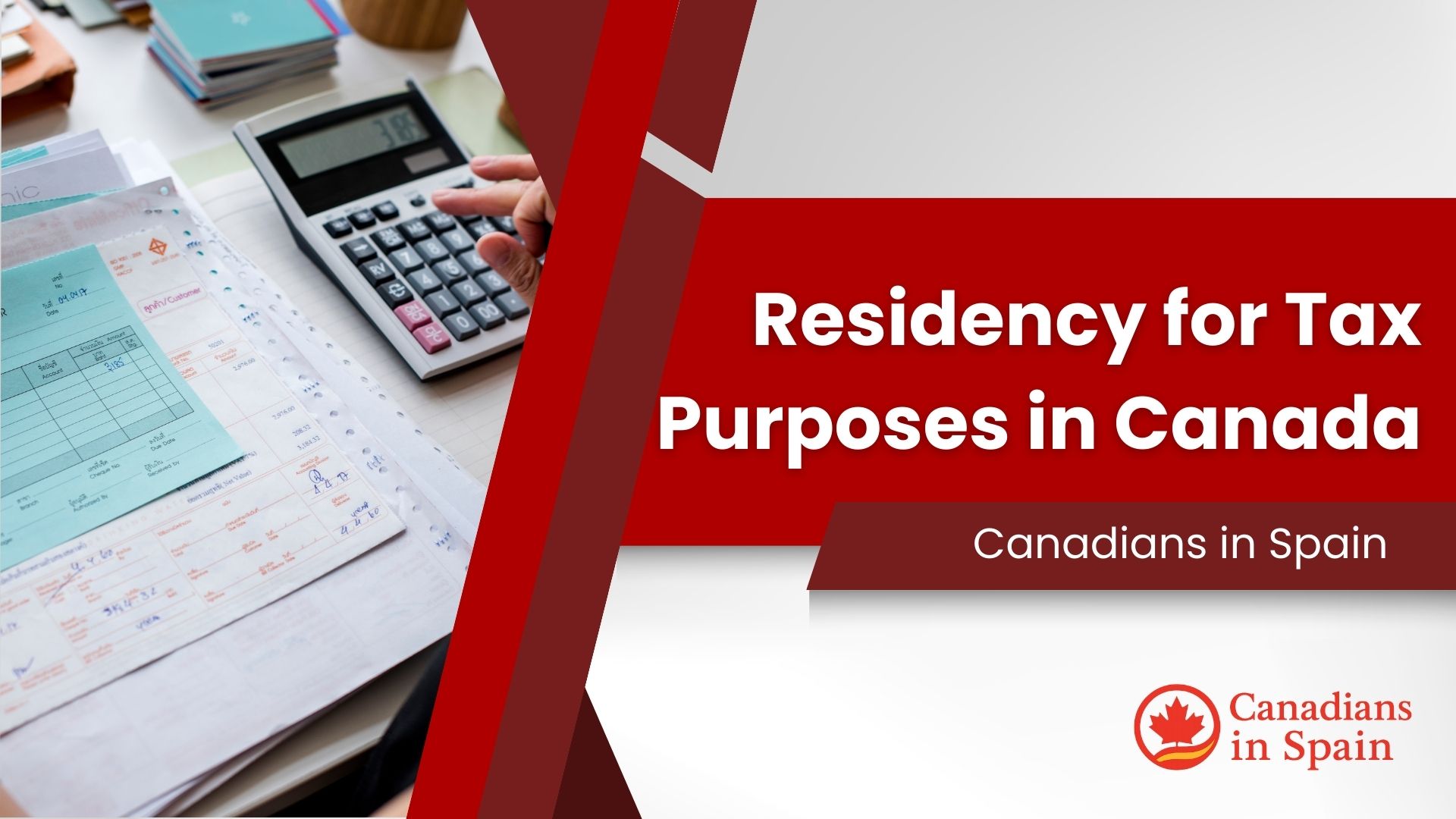The Ultimate Guide: Do You Still Need to File Income Tax in Canada After Moving to Spain?
Many Canadians assume that once they leave the country to live abroad, especially in a place like Spain, they no longer need to deal with the Canada Revenue Agency (CRA). However, Canadian tax rules are not based solely on where you live physically. Instead, they depend on your residential ties and whether you are considered a resident for tax purposes. If you are moving to Spain or already living there, it is crucial to understand if you still need to file income tax in Canada.
The consequences of misunderstanding or ignoring your filing obligations can include audits, penalties, and even double taxation. This article outlines how Canadian tax residency works, how to determine if you need to file, and what your responsibilities are based on your specific situation.
Understanding Canadian Tax Residency
The CRA uses the concept of “residency for tax purposes” to determine your obligations. Being physically outside of Canada is not enough to stop your tax duties. What matters most is whether you have maintained significant residential ties with Canada. If you do, you may still be required to file income tax in Canada on your worldwide income.
Significant residential ties include:
- A home in Canada (owned or rented).
- A spouse or common-law partner in Canada.
- Dependents remaining in Canada.
Secondary ties that may also be considered include:
- Canadian bank accounts and credit cards.
- A Canadian driver’s license.
- Health insurance with a provincial plan.
- Personal property in Canada (like a car or furniture).
- Memberships in Canadian clubs or organizations.
If the CRA determines that your residential ties remain significant, you will be considered a “factual resident” and will be required to file income tax in Canada on your worldwide income, including any income earned in Spain.
When You Are Required to File Income Tax in Canada
You must file income tax in Canada if you meet any of the following conditions:
- You are a resident of Canada for tax purposes: This applies even if you live abroad for part of the year.
- You are a deemed resident: This can happen if you are a federal or provincial government employee living abroad, or if you don’t have significant residential ties but stay in Canada for 183 days or more in a calendar year.
- You are a non-resident with Canadian-source income: Even after you’ve formally left, you may need to file if you earn certain types of income from Canada.
Filing Requirements for Residents Living in Spain
If the CRA considers you a resident of Canada while you are living in Spain, you are required to:
- Report your worldwide income on your Canadian tax return (T1).
- Convert all foreign income to Canadian dollars using the correct exchange rate.
- Complete Form T2209 (Foreign Tax Credit) to claim a credit for any income tax you paid in Spain on the same income.
- File Form T1135 (Foreign Income Verification Statement) if you held foreign property with a total cost over CAD $100,000 at any point during the year.
Filing Requirements for Non-Residents
Once you have formally severed your residential ties and become a non-resident of Canada for tax purposes, your obligation to file income tax in Canada changes significantly. You are no longer required to report your foreign income (like your salary in Spain). However, you may still need to file a return if you receive certain types of Canadian-source income, such as:
- Canadian pension income (OAS, CPP, RRIF, employer pensions).
- Rental income from Canadian property.
- Income from selling Canadian real estate.
- Dividends or interest from Canadian investments.
In these cases, tax is typically withheld at the source by the payer. However, you can elect to file income tax in Canada to potentially receive a refund or reduce your effective tax rate. For example, you can use a Section 216 return to report rental income and deduct expenses, or a Section 217 return to report pension income and apply graduated tax rates instead of a flat withholding tax.
The Departure Return and Exit Tax
If you are permanently moving to Spain and cutting your Canadian tax residency, you must inform the CRA by filing a “departure return.” This is your final tax return as a Canadian resident and includes special rules, most notably the “deemed disposition” of certain assets, commonly known as the exit tax. The CRA treats many of your capital properties (stocks, mutual funds, etc.) as if you sold them on your departure date, triggering potential capital gains taxes.
What if You Fail to File?
If you are required to file income tax in Canada and do not, the consequences can be serious:
- Late-filing penalties: 5% of the balance owing, plus 1% for each full month the return is late, up to a maximum of 12 months.
- Interest charges on unpaid taxes.
- Penalties for not filing Form T1135: $25 per day, up to a maximum of $2,500.
- Increased scrutiny and audit risk by the CRA.
Frequently Asked Questions (FAQ)
What’s the difference between a “factual resident” and a “deemed resident”?
A factual resident is someone who maintains significant residential ties to Canada, even if they live abroad. A deemed resident is someone who may not have significant ties but is considered a resident by law, for example, by staying in Canada for 183 days or more in a year. Both are required to file income tax in Canada on their worldwide income.
Can I keep my Canadian bank accounts and credit cards without being considered a resident?
Yes, you can. Keeping Canadian bank accounts or credit cards is a secondary residential tie. On its own, it is usually not enough for the CRA to consider you a resident, especially if you have severed all significant ties (home, spouse, dependents). However, it is one factor the CRA will look at.
What is the deadline for a non-resident tax return?
If you are a non-resident who needs to file income tax in Canada (for example, a Section 216 or 217 return), the deadline is generally June 30th of the following year. However, if you have a balance owing, your payment is still due by April 30th to avoid interest charges.
Is filing Form NR73 (Determination of Residency Status) mandatory when I leave?
No, it is not mandatory. Form NR73 is an optional form you can send to the CRA to request their formal opinion on your residency status. It can be useful if your situation is complex and you want certainty, but it is not a required part of the departure process.
What if I already paid taxes in Spain on my worldwide income?
If you are considered a tax resident of both Canada and Spain (a “dual resident”), the Canada-Spain Tax Treaty has tie-breaker rules to determine which country has the primary right to tax you. If you are ultimately considered a resident of Spain, you would still need to file income tax in Canada as a non-resident for any Canadian-source income. If you are considered a resident of Canada, you would claim a foreign tax credit for the taxes you paid in Spain.




